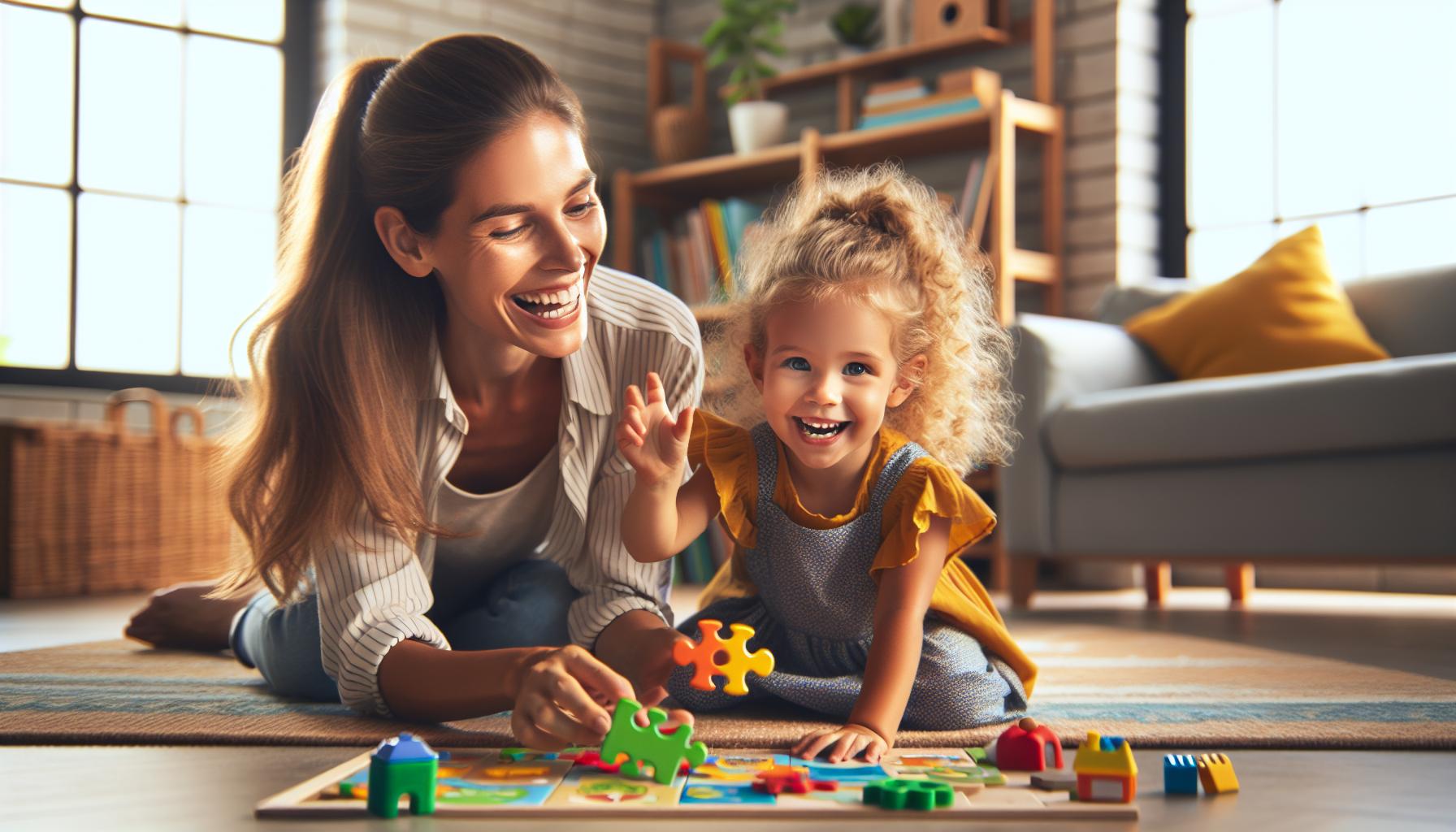Phone:
(701)814-6992
Physical address:
6296 Donnelly Plaza
Ratkeville, Bahamas.

Navigating the world of preschool parenting can be both rewarding and challenging. As kids begin to explore their independence and develop their personalities, it’s essential to provide the right guidance and support. I’ve found that understanding their unique needs can make a world of difference in fostering a positive environment.

Understanding preschool development involves recognizing the key growth areas: cognitive and emotional. Each area influences children’s overall learning and behavior.
Cognitive development in preschoolers centers on mental processes like thinking, learning, and memory. At this stage, children typically engage in imaginative play, enhancing their problem-solving skills and creativity. Encouraging activities such as puzzles, storytelling, and simple science experiments bolsters their cognitive growth. Research shows that structured play can significantly improve a child’s ability to process information and reason. Providing varied experiences helps stimulate their curiosity and understanding of the world.
Emotional development is critical in preschoolers. At this age, children begin identifying and expressing emotions, a skill vital for social interactions. Strategies like modeling emotional responses and discussing feelings foster emotional intelligence. Children learn empathy through shared experiences and guided peer interactions. Activities that involve teamwork or role-playing enhance social skills and self-awareness. According to experts, a strong emotional foundation supports better relationships and confidence in later years.
Effective communication lays the groundwork for nurturing relationships with preschoolers. It promotes trust and encourages healthy emotional and cognitive development.
Establishing routines for preschoolers creates a sense of security and helps children understand what to expect throughout their day. Consistent routines enhance development and promote positive behaviors.
Morning routines set a productive tone for the day. I recommend creating a simple checklist for your child to follow, including waking up, brushing teeth, getting dressed, and having breakfast. Visual aids, like colorful charts, can make it easier for children to grasp tasks.
Encourage involvement by letting them choose clothing or help prepare breakfast. Setting a consistent wake-up time and a designated order for tasks reduces morning chaos and fosters independence.
Bedtime routines signal the end of the day and promote better sleep habits. I suggest establishing a calming sequence of activities like bathing, reading a book, and discussing the day’s highlights. Keeping the same order nightly encourages a sense of predictability.
Limit screen time at least one hour before bed to foster relaxation. Aim for a consistent bedtime to help regulate your child’s internal clock, providing them with adequate sleep for overall health and development.
Positive discipline techniques promote a healthy learning environment for preschoolers. Implementing these strategies fosters respect, responsibility, and social skills.
Setting clear boundaries involves defining appropriate behaviors and expectations. Communicating limits establishes a safe environment where children understand what’s acceptable.
Using time-outs effectively allows preschoolers to reflect on their behavior. This strategy offers a moment to regroup without harsh punishment.
Engaging activities play a vital role in a preschooler’s development. These activities promote learning while keeping children entertained and encourage them to explore new concepts.
Educational games enhance cognitive skills in young children. I incorporate games like matching cards, which improve memory and recognition. Counting games, such as board games or online resources, can make learning numbers fun. I also use language games, like rhyming or word association, to bolster vocabulary. These engaging activities create a lively learning environment while strengthening critical thinking and problem-solving abilities.

Creative arts and crafts foster imagination and fine motor skills. I provide materials for drawing, painting, and collage-making, allowing children to express themselves freely. Activities like sculpting with playdough refine dexterity and hand-eye coordination. Story-related crafts, such as making puppets or creating masks, can also enrich narrative skills and enhance comprehension. Encouraging creativity through arts and crafts nurtures both self-expression and emotional development in preschoolers.
Navigating the world of preschool parenting can be both rewarding and challenging. By focusing on your child’s unique needs and providing the right support, you can create an environment that fosters growth and independence.
Emphasizing emotional and cognitive development through play and communication strengthens your child’s skills and confidence. Establishing routines gives them a sense of security while positive discipline techniques help them learn responsibility and respect.
Engaging activities not only make learning enjoyable but also nurture their creativity and emotional intelligence. Remember that every step you take contributes to their journey, shaping them into well-rounded individuals. Embrace this exciting time and enjoy the moments of discovery together.